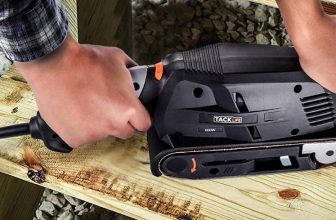Some of us get home from holiday and notice the yard is already showing signs of neglect, particularly in those summer months when everything seems to grow twice as big overnight. With weeds, brush, and other eyesores, sometimes you just want to hack away at them to get the job done quickly. Before you do, consider the best tool for the job. Under some circumstances, a brush cutter is better and a string trimmer and vice versa. They vary in power and practicality but are both effective. Let’s take a look at why.
What Is A String Trimmer?
Using a high powered motor to turn the line in quick succession, these can be found in a gas-powered, battery-operated, or corded version. They are relatively lightweight, easy to handle, and are a staple garden tool for a lot of people. The benefit is in the mobility and they can be used to trim edges as well as weeds. One of the major downsides of string trimmer is that they are not as good for thicker brush and you need to use them away from areas with pebbles as they can send them flying.
What Is A Brush Cutter?
With more of a kick to it, these use added horsepower compared to a string trimmer which makes them capable of getting through thicker brush and weeds. This makes them better for anyone who tends to their yard less frequently where everything has grown that bit taller and thicker. Another benefit is that they usually come with detachable blades to be used in different areas and some can even get through small trees. They can be a bit slow to get through some parts of the yard and are generally more expensive.
What Is The Best Type of String Trimmer?
The highest spec is a gas-powered string trimmer. They cost more but can get through large areas and be used for edging. However, anyone on a budget can pick up a quality corded string trimmer for around $50 – $60. The issue here is that a corded or battery-operated trimmer isn’t as powerful and the corded versions are restricted in terms of reach. They are a good option for anyone with a smaller, more manageable yard who wants to be able to trim edges and the odd weed.
What Is The Best Type Of Brush Cutter?
Because they have a more powerful motor, a brush cutter is capable of getting through thick areas, also because they use a metal blade rather than nylon like a string trimmer. Often they can be used with a harness to make them more comfortable and easier to control, this is important since they are a fair bit heavier. Any densely overgrown areas that regularly spring up can be dealt with easily with a brush cutter and they are well suited to anyone with a large yard or land to take care of.
Will A Nylon String Trimmer Line Break?
Although they are durable, there are certain circumstances where they can be susceptible to breaking. Over time, nylon line can break due to the effects of time so consider how old your trimmer is before you start worrying why the line has broken. Some of the most common ways they break are when they catch the side of a wall, a stone, or the edge of a step for example.
The good news is that they can be replaced relatively easily. Some experts recommend replacing the nylon string line at the start of every season as they can become brittle.
So, Which Is Best? Brush Cutter Vs String Trimmer
Effectiveness
This is where a brush cutter might seem like it is going to win easily, but it all depends on what you need. Sure, it is going to make light work of all types of weeds but if you don’t have a lot to deal with, the extra power is unnecessary. A brush cutter can get through a small tree of around 4 inches thick and any thick vegetation of a similar density.
Price
In terms of value, you can’t look any further than a string trimmer. The basic models can be found for well under $50 but this doesn’t necessarily get you a durable product. Still, for casual use, these are the better option. The better brush cutters are going to cost around $200 and above.
Durability
If you buy a $40 string trimmer, don’t expect it to last as long as the better brush cutters. With their metal blades and higher-spec engine and materials, they usually last longer. This is to be expected since they are designed to deal with a thicker brush.
Versatility
A string trimmer is only designed for light jobs and patchwork around the garden where a lawnmower might not be able to get rid of a weed. A petrol-powered or battery-operated product is going to give you some versatility in that you aren’t restricted by a cord. Still, a brush cutter will offer all this and will usually come with detachable parts for different types of brush.
Ease Of Use
If you are looking for a product to trim the weeds that is easy to use and don’t weight too much then a string trimmer is the best choice. Because a brush trimmer is designed with heavier materials, the body support takes the strain off but it does make it a little awkward to use with less free movement. The D loop handle of a trimmer makes it easy to move and can allow you to cut borders accurately. A U loop handle of a brush cutter is designed for heavier cutting and takes away a lot of the strain.
Conclusion
Although both products are reliable, only a brush cutter is capable of getting through both light and thick brush and weeds. Still, anyone with a smaller garden does not need the extra power or a metal blade to cut edges and small weeds so a trimmer is a good option if that is the case. Otherwise, we recommend a gas-powered brush cutter as you still get the mobility and freedom of being able to move around the yard unrestricted. This is particularly useful if you have a large yard where a brush cutter is going to be put to better use anyway.





